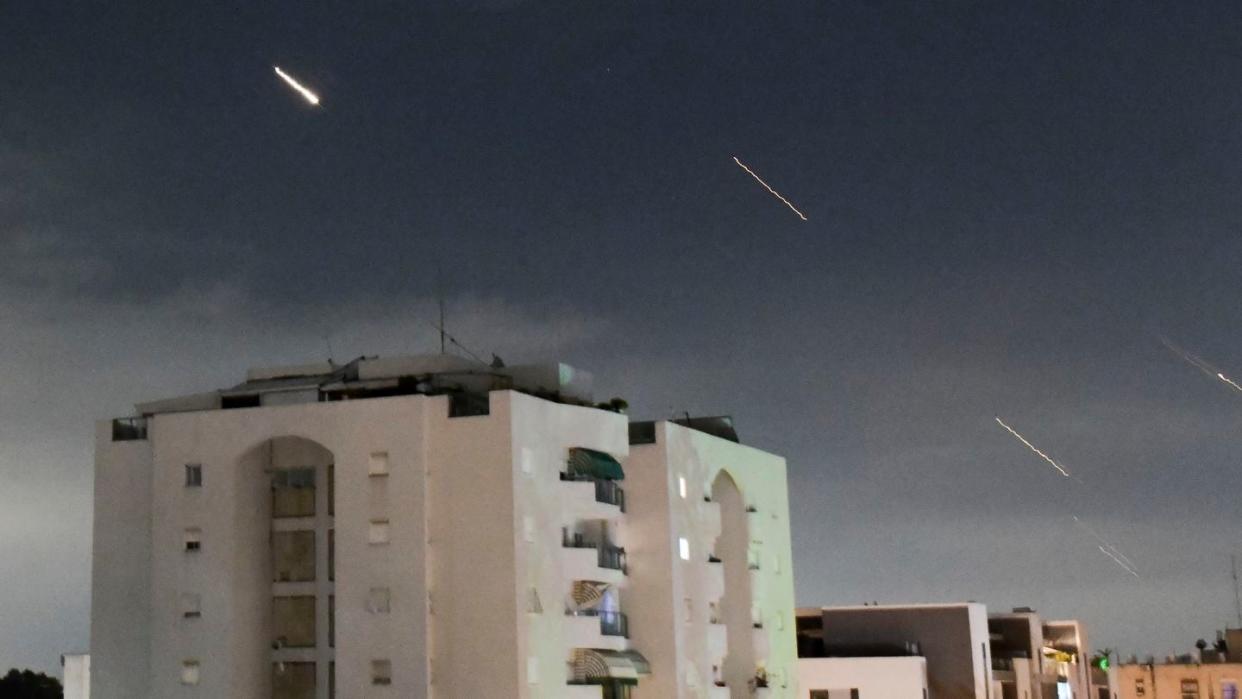US, Gulf states meet for first security forum since war in Gaza

Senior American and Arab officials are meeting this week in Riyadh to discuss security issues — the first such gathering since the war in Gaza began last year.
The Gulf Cooperation Council — whose members include the United Arab Emirates, Bahrain, Saudi Arabia, Oman, Qatar, and Kuwait — hosts a yearly set of defense working groups with the U.S. They met last year in February and promised to share more intelligence and better sync their air and missile defense networks.
But that was before Oct. 7.
Since the terrorist group Hamas launched its attack on Israel — killing 1,200 civilians and soldiers — the region has been in crisis. In the eight months since, militia groups backed by Tehran have attacked U.S. forces in the region more than 175 times. And the Houthis, a militia group in Yemen, have launched 90 attacks on commercial shipping in the Red Sea — leading to a U.S.-led group called Prosperity Guardian that’s trying to defend such vessels.
“These conversations are really more important than ever,” said a senior U.S. defense official, briefing reporters ahead of the talks on the condition of anonymity.
Pentagon head of Middle East Policy Dan Shaprio will co-chair the talks and join a larger group of American defense officials in attendance.
The official wouldn’t predict specific results but said to expect the talks to build upon progress last year. In those meetings, the group largely discussed the threats posed by Iran and its proxies in the region. The events since Oct. 7 have confirmed the value of those goals, the official said.
In particular, the official said, Iran’s missile attack against Israel in April is an object lesson. Tehran, responding to an Israeli strike on its military leaders visiting Syria, launched a massive but largely failed salvo last month. The U.S., Israel and a coalition of partners helped shoot many of the drones and missiles down.
“Ironically April 13, which was really a proof of concept of integrated air and missile defense, was ultimately successful in sparking deeper cooperation among our partners,” the official said, while declining to offer specifics other than that the air and missile defense working group would focus on better early warning systems.
Prosperity Guardian
Similarly, the maritime working group will largely discuss threats posed by the Houthis.
In December, the U.S. and a group of partners began Operation Prosperity Guardian, a joint effort to protect shipping from such attacks. That coalition includes the regional partner of Bahrain, though the official noted that other countries are contributing but prefer not to be named.
“The solution there [in the Red Sea] is not a military solution,” said Vice Chairman of the Joint Chiefs of Staff Christopher Grady, speaking an event hosted by the Center for Strategic and International Studies in early May.
The Houthi’s attacks have continued despite the coalition’s effort. They struck an oil ship in mid-May and keep targeting American military vessels in the region.
“It is true they continue,” the defense official said. “It is also true that we feel through our coalition strikes we’ve degraded their capability.”
Despite these crises beginning after last fall, the official said Israel’s war isn’t on the docket to discuss. Instead, the U.S. is speaking with Arab states separately on how to send more aid into Gaza. A $300-million-dollar pier America constructed to provide more assistance started operating this month.
But civilians on the strip haven’t received anything yet, Pentagon Press Secretary Pat Ryder told reporters this week. The U.S. maintains that there’s no substitute for more aid arriving by land, which Israel has so far restricted.
“Gaza is not a particular focus of this meeting,” the official said.

